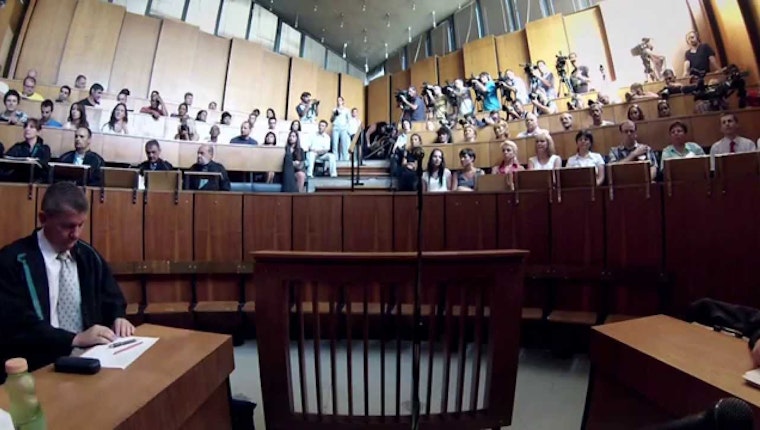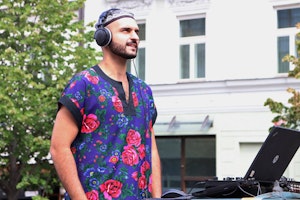Judgment in Hungary: An Attack on Roma, and a Search for Justice
By Eszter Hajdu

In 2008 and 2009, Hungarian right-wing extremists committed a series of attacks on members of the Roma community. Six people were killed, including a five-year-old, and another five were injured. The trial of the four suspects lasted two and a half years; the verdict was passed in August 2013. Director Eszter Hajdú filmed the trial, which eventually became the documentary Judgment in Hungary.
I occupy the rare position of exposing my fellow citizens to an atrocity that most people seem ready to ignore. During the legal process, there was little interest in Hungary concerning the trial. We were the only crew filming there over 167 days, and there were no journalists present for most of the hearings. We decided to accept responsibility for documenting everything and, with this film, to generate social discourse about the problem of hate crime in our society.
First we enjoyed recognition elsewhere, at international film festivals and via international awards. Judgment in Hungary received 12 international awards, was screened in 25 countries, and appeared at 27 festivals. We finally got to premiere the film in Hungary in May after news of our project had spread locally. We didn’t know what to expect, but it went very well.
Around 500 people came to the premiere, more than filling the venue. More importantly, media started to publish self-critical articles about how they reported on the trial. Immediately after the premiere in Hungary, four different cinemas started to screen the film, and we had a hit.
The press was full of headlines like, “Judgment in Hungary is the most important film of the last decade in Hungary,” or “Judgment in Hungary should be seen by all Hungarians.” Beyond this broad coverage, we received lots of compliments from the Roma community and invitations to show the film at schools, universities, and law associations who want to organize screenings.
We intend to screen the film widely because we believe it exposes a painful truth. Theoretically, Roma have access to justice but in the legal practice they don’t have the same rights that other people do. In Hungary and also in the region, Roma people face daily discrimination in almost every situation in their lives.
The authorities, police, and judges act on the premise that Roma people don’t deserve the same kind of respect as other citizens. Roma people don’t dare to go to the police to report if they become victims of violence or even hate crimes because they have learned to expect indifference or blame from the police.
We have already done and will continue to do community screenings involving professional activists and legal experts because “speaking out” can reduce trauma. Roma communities also sorely need more legal help.
So we keep sharing our story. We hope to promote more and more debates in Central and Eastern Europe, especially among people who can promote changes in hate-crime policy.
Judgment in Hungary was made with the support of the Open Society Foundations.
Eszter Hajdu is a documentary filmmaker and director.


